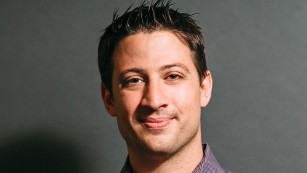Evan Feinberg is the president of Generation Opportunity, a youth advocacy group that promotes less government and more freedom. The opinions expressed in this commentary are solely those of the author.
(CNN)Criminal justice reform is rapidly becoming one of the few bipartisan issues of our time. It's about time.
America
has the highest incarceration rate in the world, with 5% of the world's
population and 25% of its prisoners. Nearly 2½ million Americans are in
prison. Over 65 million people, or 20% of the country, have criminal
records. Most disturbingly, nearly 40% of our country's prisoners are
African-Americans, who only make up 13% of the general population.

Evan Feinberg
It's
time for policymakers to address this criminal justice crisis head on.
We must change the dismal status quo. We must start by asking a simple
question: Why are so many Americans criminals? Look no further than
Washington, which has spent the past century devising the most
complicated — and nonsensical — criminal code known to man.
The
federal criminal code includes over 4,500 laws and counting, not to
mention government regulations for which there are criminal penalties.
The list of federal crimes is so long, so broad and so vague that you
and I likely commit three felonies every day, unwittingly breaking
numerous federal laws as we go about our daily business.
No
wonder America's prison population is out of control. Americans aren't
addicted to crime; our politicians are addicted to criminalizing things.
Sadly,
the criminalization of Americans also traps them in poverty. According
to the Pew Charitable Trusts, incarceration leads to reduced wages (11%
drop), employment (nine weeks lost annually), and earnings overall (40%
annually). Making matters worse, over half of new prisoners are at or
below the poverty line and three-quarters of former prisoners are sent
back to jail within five years of their release.
The
deck is stacked against my generation in particular. Young adults are
10% of the population yet comprise 29% of the country's arrests. Young
African-Americans are particularly at risk: They're 15 times more likely
to be in prison than whites. No wonder 18-to-29-year-olds have the
lowest level of trust of any age group that our justice system treats
everyone equally.
Thankfully, there is a
bipartisan consensus in Washington that something needs to be done, and
fast. On the left, civil rights groups and their allies in Congress
have been demanding that the criminal system be fixed for years. On the
right, politicians from Paul Ryan to Rand Paul are now recommending the
same thing.
If politicians are serious, they should consider three specific areas for reform.
1. Reduce punishment for nonviolent crimes
Politicians
should consider reducing nonviolent offenses from felonies to
misdemeanors, and end mandatory sentencing for nonviolent crimes. The
federal government's unsuccessful war on drugs has led to unfair
punishments for nonviolent drug offenders who made youthful mistakes.
http:// ---www.cnn.com
